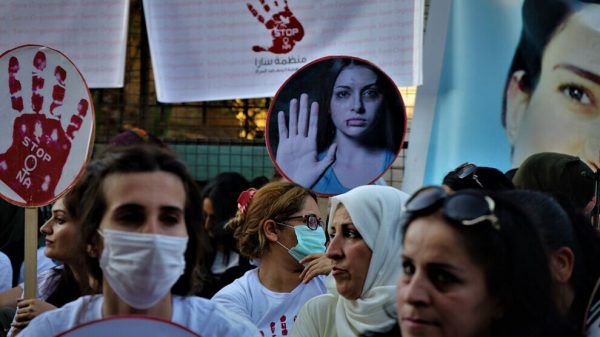Five years have now passed since 22-year-old trans activist Hande Kader was found dead in Istanbul. She was murdered after she had been subjected to the most horrific violence. She was known in the queer community for her resistance to police violence during the 2015 Istanbul Pride. Three years after, her friend Didem Akay committed suicide. Two friends were ripped from their lives because of the patriarchal, anti-women and anti-trans system. For both the murder of Hande Kader and the circumstances that drove Didem Akay to suicide are political and not isolated cases. They are not only attributable to the anti-women and anti-queer mentality in society, but also to a deliberate government policy that permanently reinforces it. A government that presents its patriarchal and misanthropic face more and more openly not only within the country, but also at its external borders.
On July 1, Turkey officially withdrew from the Council of Europe’s international Convention on Preventing and Combating Violence against Women and Domestic Violence, or Istanbul Convention. The withdrawal was announced overnight just a few months earlier on the grounds, among others, that the convention served to “normalize homosexuality” and would thus endanger Turkey’s “family and social values”. This move proved once again that the AKP-MHP government is pursuing explicitly anti-women and anti-queer policies that not only trivialize and tolerate patriarchal violence, but actively reinforce and fuel it. In a country where women are murdered, found dead, missing, or subjected to physical and sexual violence on a daily basis, it can be assumed that perpetrators will face even fewer consequences in the future than before. The Istanbul Convention obliges the signatory states not only to continuously develop support and counseling services for victims, but also to actively combat and punish all forms of psychological, physical and sexual violence, stalking, forced marriage, genital mutilation (FGM) and sexual harassment. In practice, however, things looked quite different in Turkey anyway.
Men are Protected, Women Accused
In the first half of 2021 alone, the “Kadın cinayetlerini durduracağız” (“We will stop feminicides”) platform recorded over 130 feminicides in Turkey. In addition, around 100 other women were found dead under suspicious circumstances. Hundreds of women have also been murdered by men in Turkey each year in recent years. The number of unreported cases is likely to be much higher. As is so often the case, the perpetrators were usually (ex-)partners, husbands or acquaintances of the murdered women. Often they are simply released and acquitted. In court, with questions like “What was she doing there? What was she wearing?” attempts are regularly made to place the blame on the victim instead. While relatives have to bury their sisters, girlfriends, comrades, daughters or mothers, murderers and rapists walk free and do not have to live with the consequences, such as the main suspect in the murder case of student Aleyna Çakır, which caused a nationwide outcry last year. Aleyna had previously been systematically abused by her partner at the time, Ümitcan Uygun, and, as video footage showed, beaten unconscious. Uygun was arrested for several months, though not for the murder but for drug use. Now he allegedly murdered another woman named Esra Hankulu in her Ankara apartment in early August of this year.
How the state and the patriarchal judiciary abandon victims was also shown in the case of Melek Ipek, a wife and mother who, in the face of systematic sexual and physical violence on the part of her husband, had to resort to the last resort and shot him in January of this year in self-defense to protect herself and her children. While murderers like Uygun walk free, Melek Ipek was immediately charged with premeditated murder. She sat in detention for months after her traumatic experiences before finally being released. Such action by the judiciary signals not only to the individual victims, but at the same time to all women time and again that they are not protected in this country, are not taken seriously and are even blamed themselves when they become victims of violence.
Femicidal Politics Across Borders
As indicated at the beginning, it is important at this point not to speak simply of individual cases or of “failure of the authorities”, “failure of the judiciary” or the like, but of a deliberate patriarchal and femicidal policy of the right-wing AKP-MHP government, which not only reveals its misogyny in domestic politics, but has long since spread beyond Turkey’s national borders. While it continues to fuel and reinforce violence within the already patriarchal and sexist society, a war is also being waged on Turkey’s external borders to consolidate the power of Islamist patriarchal forces. The example of Efrîn in West Kurdistan/North Syria in particular shows how drastically this affects the situation of women. Efrîn was one of the three self-governing cantons of Rojava and a symbol of women’s liberation and peaceful coexistence of peoples before it was attacked and occupied by the Turkish military and its Islamist mercenaries in 2018. The result was not only systematic destruction, looting, and the displacement of much of the predominantly Kurdish population there, but also, in the long term, a targeted policy of resettlement, assimilation, and Islamization that has forced Alevis, Êzîdis, and Christians in particular to flee. The occupation of Efrîn was part of the Turkish state’s goal of destroying the self-administration under the vanguard of the women’s movement and thus eliminating any hope for permanent peace in the region. The fact that women in particular were and are being attacked in the course of this is no coincidence, but a deliberate strategy to break the resistance of the women who have led the Rojava revolution and have made it possible in the first place. According to human rights organizations in Efrîn, a drastic increase in feminicides, rapes, kidnappings and forced marriages of (underage) women is evident in the wake of Turkey’s occupation of Efrîn. Even beyond Efrîn, hundreds of women fell victim to Turkey’s numerous wars of aggression. The campaign “100 Reasons” reported on a hundred women murdered due to Erdoğan’s femicidal and anti-Kurdish policies – in North Kurdistan, in South Kurdistan, in Rojava, in Europe. In the streets, in the mountains, in their homes. Taybet Inan, Hevrîn Xelef, Dilek Doğan and Deniz Poyraz. Sakine Cansız, Leyla Şaylemez and Fidan Doğan. Sevê Demir, Pakize Nayır and Fatma Uyar. These are just some of the names of countless women who have fallen victim to this patriarchal and anti-Kurdish policy.
International Organizing, Networking, Self-Defense
In this context, it should be clear that such deep misogyny cannot be addressed through state action alone. Certain liabilities through conventions such as the Istanbul Convention are important, just as it was important to mobilize and demonstrate against Turkey’s withdrawal. But especially in light of the possibility that other states such as Poland might follow suit, the more important question that feminist movements and women’s movements should and must address more intensively remains how to proceed after the withdrawal and what non-state and non-institutional approaches and self-defense mechanisms need to be developed. This ultimately makes the struggle against feminicide and against patriarchal violence a global cause that requires international networking, alliance, and self-defense. Only by connecting and radicalizing global feminist, anti-capitalist, anti-racist and ecological struggles can we succeed in organizing collective anger, responding to patriarchal and state violence, and working together to develop political and social models that enable women and all people to live their lives free from violence, power and war.

